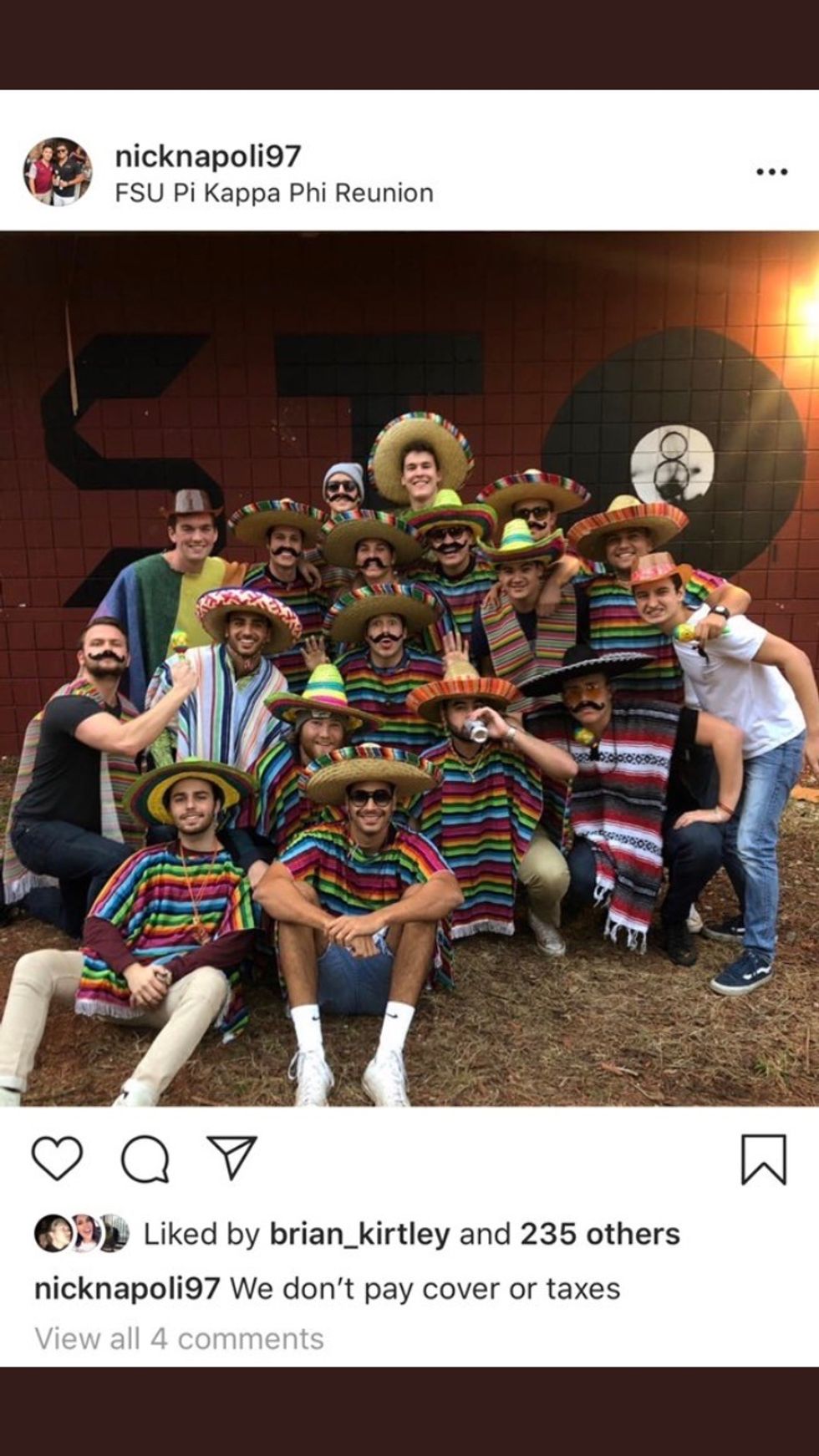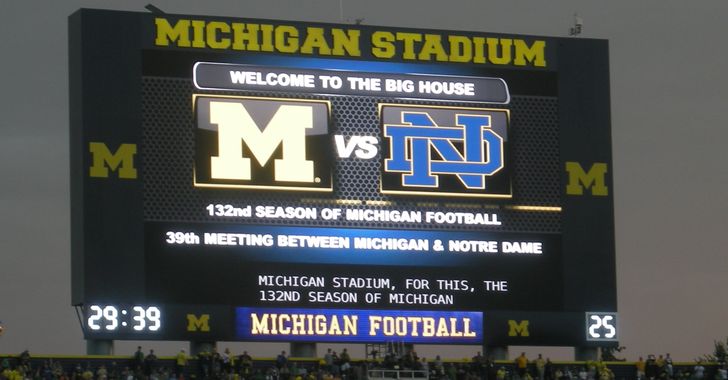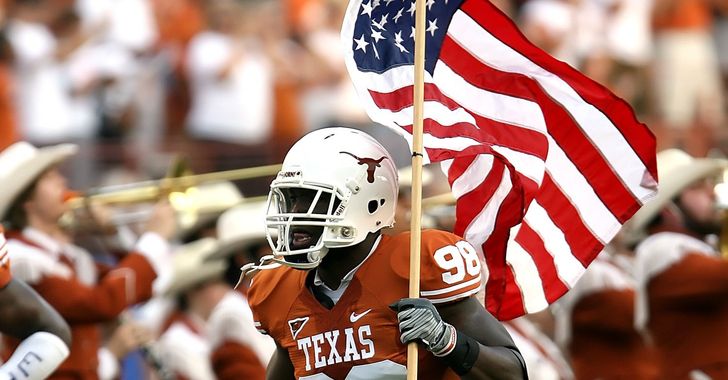Last November, in 2017, the Pi Kappa Phi (also known as Pi Kapp) chapter at Florida State University was shut down, in which the 150 or so members were revoked of their membership. They were shut down after the unfortunate and unnecessary death of Pi Kappa Phi pledge Andrew Coffey.
Regardless, this did not stop some of them from having a "reunion" one year later. Pi Kappa Phi, as well as Florida State University, has garnered a very large audience, all of whom are enraged by an Instagram post made by Nick Napoli.
In this specific Instagram post (now deleted), shown below, a group of 18 boys can be seen posing in traditional Mexican ponchos and sombreros.
Aside from their obvious cultural attire, Napoli also went as far as to caption his Instagram photo as, "We don't pay cover or taxes," in addition to also tagging his location as "FSU Pi Kappa Phi Reunion."
Nick Napoli and the other 17 boys in the photo, Pi Kappa Phi, and even Florida State University have been on the receiving end of a multitude of backlash. FSU students, the National Association for the Advancement of Colored People (NAACP) chapter at FSU, the Beta Iota Chapter of Lambda Theta Phi, Latin Fraternity, the Hispanic/Latino Student Union (HLSU), and even the general public, have all released a multitude of statements and comments in order for Florida State University to take the appropriate actions necessary.
According to the letter written by the HLSU, the actions of the former Pi Kappa Phi are prohibiting the "inclusive and safe environment for all [on campus]." Moreover, as 20% of the student body at Florida State University consists of the Hispanic population, the NAACP finds Napoli at fault for cultural appropriation.
Nick Napoli and his friend group, all of whom appear to not be a part of the Hispanic population, purposefully adopt the traditional attire and maracas for the sole purpose of this "reunion." Worse off, in conjunction with their adopted attire, the caption makes a racial dig at the minority group, otherwise insinuating that, as a whole, the Hispanic population does not pay their taxes. In the eyes of many, especially the Lambda Theta Phi, Latin Fraternity, Napoli is "perpetuat[ing] a negative image of the Latino community" and "slander[ing] immigrants" and their lives and places within the United States.
What makes matters even worse is that Napoli holds a seat on the Student Body Senate. As a member of the Student Body Senate (Fall Business Seat 5), under the Legislative branch, many argue that he should have known better than to participate in such discriminatory behavior. According to the Student Government Association website, their mission "is to provide FSU students with representation, services, and advocacy within the university structure" as well as provide "quality leadership for, and accountability to, its constituency by recognizing that strength arises from diversity, engagement, and dialogue."
With that in mind, Napoli's actions absolutely do not "provide students with representation," nor does it call upon "quality leadership" on his part. While some groups call for Florida State University to act by forcing him to give a formal and public apology or forcing him to give up his seat on the Student Body Senate, it is undoubtedly clear that these 18 boys must reap the consequences of their inappropriate actions. While these boys and their fraternity may no longer be officially recognized, many argue that the university should still act, and punish accordingly, as these boys are still FSU students, endangering the safe environment of the Hispanic community.
Currently, Nick Napoli's Instagram has been deactivated and none of the 18 boys have made any statements in their defense. This second strike against this particular fraternity at Florida State University, following the death of a pledge and approximately five-month suspension of all Greek Life within the last year, dredges up the questions of what their actual purpose is and the benefits they pose. As of this instant, many students, the different organizations, and the general public are still waiting for Florida State University to make an official statement and take the appropriate action.








 Photo by
Photo by 









































